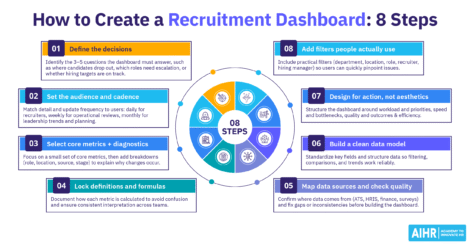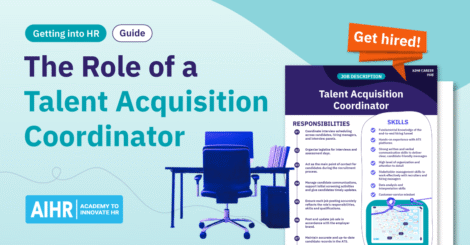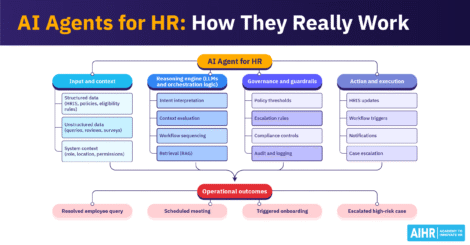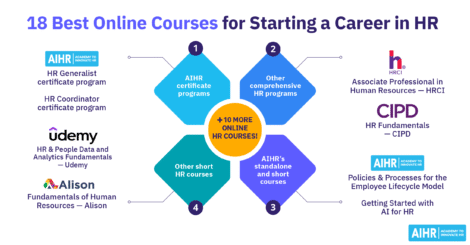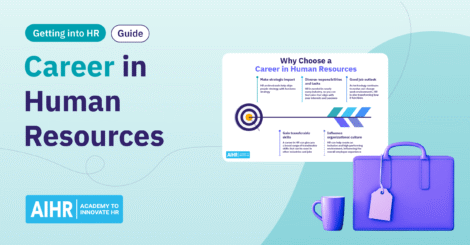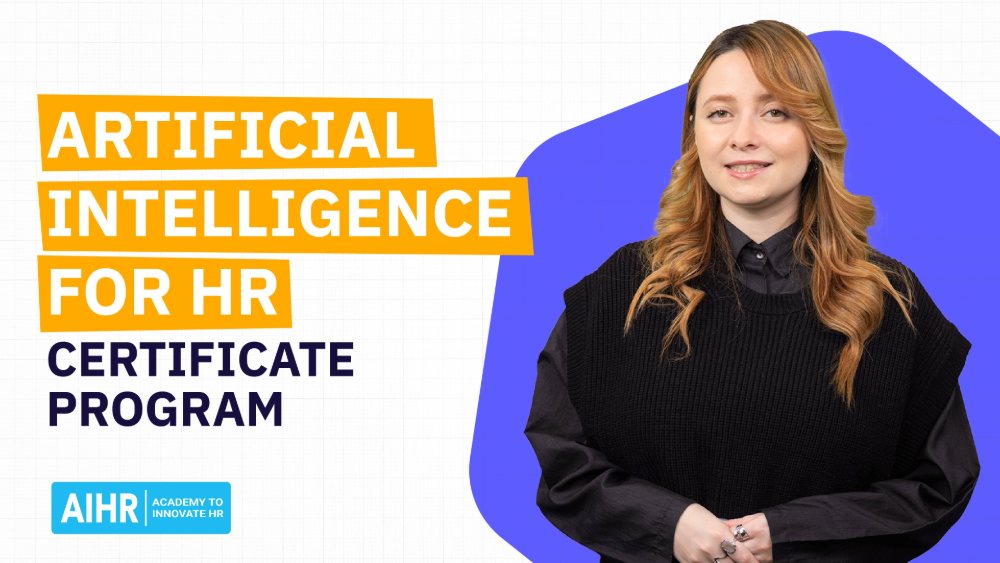Detailed interview feedback is crucial to creating a positive candidate experience. Glassdoor research reveals that 53% of UK employees and job seekers want feedback even after an unsuccessful interview. Yet, many report receiving little to none from organizations they’ve interviewed with. Thoughtful feedback not only helps candidates refine their job search but also enhances your reputation as a transparent and supportive employer.
In this article, we’ll walk you through several interview feedback examples—positive, negative, and constructive—that you can adapt to provide valuable insights and leave a lasting, positive impression.
Contents
What is interview feedback?
The importance of interview feedback
The different types of interview feedback
Interview feedback examples
1. Unsuccessful interview feedback examples
2. Negative interview feedback examples
3. Constructive interview feedback examples
4. Positive interview feedback examples
5. Technical interview feedback examples
How to provide interview feedback: Best practices
What is interview feedback?
Interview feedback is feedback an interviewer gives to a candidate following a job interview. This often consists of how the candidate performed during the interview, how well they completed skills tests, how well their answers to questions aligned with the role, and how suited and qualified they are for the vacancy.
HR professionals who provide unsuccessful candidates with interview feedback usually do so once they decide they won’t be moving their applications forward. To do this, they must take detailed notes during the interview, carefully observe the candidate’s behavior and body language, and assess their suitability for the role. These notes are often added and refined shortly after the interview, once the interviewer or hiring team has had time to reflect.
HR tip
Software like Noota can save interviewers time by automatically transcribing conversations after an interview, highlighting key points and skills, evaluating responses based on job criteria you have set, and sharing feedback with candidates in one click.
The importance of interview feedback
Here are some benefits of offering feedback to all your candidates after an interview, whether they’ll be moving on to the next round or not:
Helps candidates in their job search
Providing candidates with positive, constructive feedback helps them better understand their strengths and areas for improvement, boosting their confidence, knowledge, and interview skills. This makes them more prepared for future interviews and increases their chances of landing their ideal job. When they succeed, they’ll remember your role in helping them along that journey.
Ensures you don’t miss out on top talent
Sometimes, your preferred candidate won’t accept your job offer. In these cases, you’ve likely interviewed other highly qualified candidates who are also a great fit. However, if those candidates didn’t have a positive experience, you risk losing the chance to hire them as well. A strong candidate experience can keep you connected with excellent talent for future opportunities.
Creates a positive candidate experience
Missing out on a job you really want is disappointing—this is a painfully common experience. But even if a candidate doesn’t get the job, getting helpful feedback can transform a negative experience into a positive one. Additionally, candidates often say they want feedback; giving them what they want can help your company build a stronger employer brand.
Encourages repeat applicants
If a candidate has had a negative experience with you, they’re less likely to apply to future positions at your organization. On the flip side, candidates who have had a positive experience and received interview feedback are not only more likely to apply for other positions at your company, they’ll probably be even better candidates than they were the first time around—thanks largely to the feedback you gave them.
In fact, research has shown that 52% of candidates who received interview feedback were more likely to continue a relationship with the company that gave them the feedback.
Refines your hiring process
Interview feedback isn’t just for candidates—it also helps your hiring team assess whether you’re attracting the right talent, compare applicants effectively, and gather clear insights from interviewers to ensure your company is making the best hiring decision possible.
Boosts employer branding
Taking the time to offer all your candidates meaningful feedback leaves a good impression and helps job seekers view you as honest and caring, which can improve your employer brand and make you more attractive to other talent.
Refine your candidate feedback with essential skills
Providing clear, constructive interview feedback is crucial for building a strong employer brand and maintaining positive candidate relationships.
In AIHR’s Sourcing and Recruitment Certificate Program, you will learn essential skills for giving effective feedback, improving recruitment processes, and ensuring a top-notch candidate experience.
This online, self-paced program will also teach you to create and implement an employer branding strategy that resonates with your ideal candidates.
The different types of interview feedback
Non-constructive feedback
Non-constructive feedback doesn’t help the candidate’s interview performance. Generally, non-constructive feedback may be too negative, unhelpful, or vague for the candidate to gain anything valuable. For example, it might include feedback that’s not related to the candidate’s performance or personal criticism that’s not relevant to the job.
Constructive feedback
An example of good feedback is constructive feedback. It aims to support the candidate in improving their interview performance and provides actionable and specific advice to prepare them for their next interview (or explain why they won’t be moving to the next round of the interview process). It helps and uplifts the candidate rather than undermining them. Examples can range from pointing out communication errors to offering suggestions on giving better, more informative interview answers.
Generally, constructive feedback is associated with more results than non-constructive feedback or no feedback at all. For instance, positive feedback contributes to a better candidate experience overall because it gives them something valuable, even if they did not get the job.
The value of receiving feedback from candidates
In addition to giving candidates constructive feedback, it’s also important to solicit feedback from them. Candidate feedback can help you improve your organization’s hiring process. Some practical techniques include:
- Set expectations early: Let candidates know early on that their feedback is essential.
- Actively listen to feedback: Prioritize listening to feedback from candidates, and take their suggestions seriously.
- Provide multiple feedback channels: Let candidates choose how to respond. Some might prefer to do so in person immediately after the interview, whereas others may want to respond via email after the interview process ends.
Interview feedback examples
Let’s explore some different examples of interview feedback.
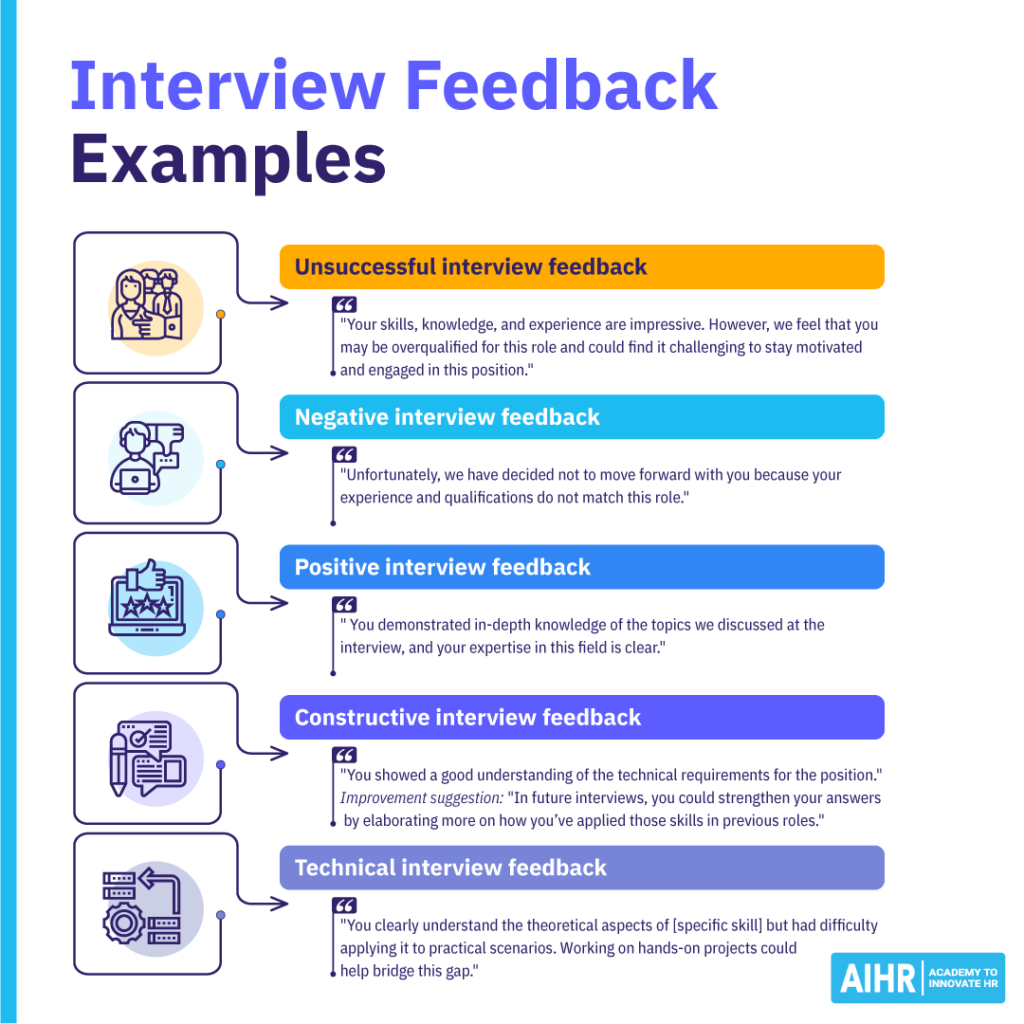
1. Unsuccessful interview feedback examples
Sometimes, a candidate isn’t the right fit for the role. Other times, they’re a great fit, but someone else aligns better with the position and company. Here are some unsuccessful interview feedback examples you can customize as needed.
- “Your skills, knowledge, and experience are impressive. However, we feel that you may be overqualified for this role and could find it challenging to stay motivated and engaged in this position.”
- “While your experience in this field is strong, we believe you might face difficulties in meeting the specific requirements of this role.”
- “We didn’t observe enough evidence of teamwork or collaboration during the interview. This role requires strong cooperation, so we recommend highlighting your teamwork skills in future interviews.”
- “We didn’t hear much about the proactive initiatives you’ve taken in your previous roles. In future interviews, be sure to demonstrate your ability to take initiative.”
- “Some of your answers lacked detail, particularly when describing how you’ve handled past situations. Adding more depth to your responses will strengthen your interview performance.”
Unsuccessful interview feedback email example
Dear [Candidate Name],
It was a pleasure meeting you during the interview last week.
You brought a strong mix of skills and experience to the table, which we truly appreciate.
However, some of your responses to our situational questions highlighted gaps in industry knowledge that are important for success in this role. An in-depth understanding of current trends and challenges within the industry is essential to thrive in this position.
To help build this knowledge, we recommend exploring industry journals, newsletters, or joining online communities where you can stay up to date on the latest developments.
We wish you all the best in your job search and future endeavors.
Sincerely,
[Name and Position]
2. Negative interview feedback examples
Negative feedback can be difficult to share. It’s important to remain sensitive and respectful to the candidate while also being transparent. The key is to be tactful in letting the candidate know they aren’t a good fit for the position and avoid coming across as rude. Here are some negative interview feedback examples:
- “Unfortunately, we have decided not to move forward with you because your experience and qualifications do not match this role.”
- “During the interview, we found your personal values did not align well enough with our company values. Therefore, we feel the organization may not be a good fit for you.”
- “While we greatly appreciate your interest in the role and our company, your skill set does not meet the requirements for this role.”
- “Unfortunately, the references you provided us with do not support the qualifications and experience you mentioned at the interview. “
- “Your answers to the technical questions at the interview did not demonstrate enough of the knowledge required for this position.”
Negative interview feedback email example
Dear [Candidate Name],
Thank you for your interest in the [Position Title] role and for taking the time to meet with us.
After careful consideration, we’ve decided to move forward with other candidates. During the interview, we felt your responses didn’t display the knowledge or characteristics we’re looking for in this role.
However, we truly value candidates who show a strong interest in our team. As such, we encourage you to reflect on our feedback and look out for future opportunities at our company.
We wish you all the best in your job search and future endeavors.
Sincerely,
[Name and Position]
3. Constructive interview feedback examples
Constructive feedback gives candidates specific tips on areas for improvement to help with their job search. This typically includes highlighting what they did well, followed by suggestions for improvement. Constructive feedback should only be given, though, if the candidate asks for further information.
Below are some examples of constructive interview feedback.
- “You demonstrated strong communication skills during the interview, especially when discussing your past projects.” Improvement suggestion: “However, I would recommend focusing on providing more detailed examples of how you handled challenges in those projects to highlight your problem-solving abilities better.”
- “Your enthusiasm for the role was evident, and you clearly did research on our company.” Improvement suggestion: “It might be helpful to work on organizing your responses more clearly to ensure that all of your points are easy to follow.”
- “You showed a good understanding of the technical requirements for the position.” Improvement suggestion: “In future interviews, you could strengthen your answers by elaborating more on how you’ve applied those skills in previous roles.”
- “You have a strong grasp of the industry and were able to discuss trends confidently.” Improvement suggestion: “Next time, consider focusing more on how you’ve contributed to those trends or implemented similar strategies in your previous roles to show your direct impact.”
Constructive interview feedback email example
Dear [Candidate Name],
I appreciate your commitment to personal development, and I’m happy to provide some constructive feedback you requested on your performance during the interview process.
Strengths:
- You conveyed your experiences and ideas confidently, particularly in [specific area].
- Your expertise in [mention specific skill/area] was impressive and aligned well with the role’s needs.
- You maintained a positive, professional attitude throughout the process.
Areas for improvement:
- While your answers were solid, providing more specific examples would better showcase your achievements, especially in challenging scenarios.
- Connecting your skills more directly to the responsibilities of the role would have strengthened your candidacy.
I hope this feedback helps. We encourage you to apply for future opportunities, and I wish you the best in your job search.
Sincerely,
[Name & Position]
4. Positive interview feedback examples
Positive interview feedback highlights what the candidate did well, including specific examples of how they demonstrated their skills, knowledge, and attributes. Here are some positive interview feedback examples you can use and edit.
- “It was clear to the entire interview panel you had thoroughly researched the company and role prior to attending. We were impressed with your knowledge and insights and appreciate the effort you put in.”
- “You had a positive attitude and friendly approach that made it a joy to interview you.”
- “It was clear you were well-prepared for the interview and genuinely interested in working with our company.”
- “You demonstrated in-depth knowledge of the topics we discussed at the interview, and your expertise in this field is clear.”
- “We were most impressed with your strong communication skills and ability to express yourself clearly and confidently.”
Positive interview feedback email example
Dear [Candidate Name],
Thank you for interviewing for the [Job Title] position at [Company Name]. It was a pleasure meeting you.
We were particularly impressed with how you handled the hypothetical situations presented during the interview. Your ability to think critically and take initiative aligns with we’re looking for in this role.
We are still in the process of meeting with other candidates, but we expect to make a decision by the end of this week and will be in touch soon.
Sincerely,
[Name & Position]
5. Technical interview feedback examples
Technical feedback focuses on the specific skills—technical abilities, soft skills, and competencies—a candidate should possess for a role and helps raise awareness of areas for improvement. Again, this should typically only be given if the candidate requests feedback on their technical competencies or to prepare the candidate for the next round of interviews. Here are some technical interview feedback examples.
- To further develop your expertise, you may want to improve your understanding of [specific technology or concept], which are a key part of the role’s responsibilities.”
- “You clearly understand the theoretical aspects of [specific skill] but had difficulty applying it to practical scenarios. Working on hands-on projects could help bridge this gap.”
- “We appreciated the thorough information and well-crafted slides in your presentation. It’s clear you invested a lot of effort. Enhancing your communication and presentation skills will make your delivery even more impactful.”
- “You mentioned during the interview that you work best independently and in a quiet environment, free from distractions. However, this role requires extensive collaboration with various teams.”
Technical interview feedback email example
Dear [Candidate Name],
Thank you again for taking the time to interview with us for the [Job Title] position and congratulations on making it through to the final interview.
In preparation for the final interview, I recommend familiarizing yourself with the data analysis software, as it plays an important role in succeeding in this role.
We look forward to seeing you again at the final interview next week.
Sincerely,
[Name & Position]
How to provide interview feedback: Best practices
Here are some best practices to observe when providing interview feedback to candidates.
- Be prompt: Prepare your feedback as soon as possible after the interview while the details are still fresh in your mind. Research by Indeed shows the average response time across all industries is 24 days after an interview. This means that if you send feedback to candidates within a week after the interview, you’re already much quicker than average. The more prompt your interview feedback, the more impressed your candidates will be.
- Be specific: Specific examples help candidates better understand their strengths and weaknesses and empower them to improve. Avoid generalizations and sweeping statements. Use simple language and refrain from using confusing, overly technical terms.
- Balance positives and negatives: Try to include a mix of positive feedback and constructive or negative feedback. Nobody likes to hear negative feedback, so soften the blow by balancing it with something they did well or, at least, make your negative feedback as constructive and useful as possible. Don’t forget to include actionable suggestions for improvement.
- Be sensitive and compassionate: There’s no need for rudeness, even when giving negative feedback. Be honest, but remain tactful in how you phrase your observations. For example, instead of saying, “You are terrible at teamwork,” you could say, “We noted during the interview that you prefer to work independently rather than as part of a team. However, teamwork is an essential part of this role.”
- Encourage and support every candidate: The aim of interview feedback is to offer candidates guidance to help them progress in their careers, land their dream jobs, and have a positive candidate experience even if they don’t get hired. Where appropriate, suggest courses, mentorship opportunities, and other development tools that can help candidates improve specific knowledge and skills.
HR tip
Create a standardized candidate feedback form or template, and send it to every candidate after their interview to ensure a consistent and fair feedback process.
Over to you
Sending interview feedback to candidates doesn’t just improve their candidate experience. It also increases the chances of them reapplying to your company in the future and enhances its employer brand. It shows candidates you value them as individuals and genuinely care about their career growth, even if you didn’t select them for the role. Use the job interview feedback examples in this article to craft constructive emails that offer your candidates support and honest feedback.










